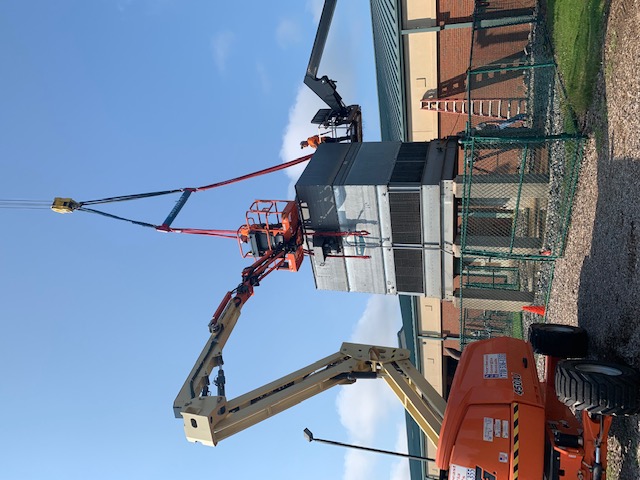
MAR 15, 2023
What to Know About Recycling HVAC Scrap
HVAC (Heating, Ventilating, and Air Conditioning) systems are integral to modern living. They regulate temperature and air quality in homes, offices, and commercial buildings. As these systems age or become outdated or inefficient, owners may decide to replace them. When this occurs, it's essential that old HVAC materials be disposed of correctly - this is where HVAC scrap metal recycling comes into play. RCM Recycling is ready to accept HVAC materials based on the information in this article.
What is HVAC Scrap?
HVAC scrap is the term for parts and materials from an HVAC system that has become inoperative. This could include anything from an air conditioning unit's metal components to furnace copper wiring. HVAC scrap often contains valuable metals and other valuable materials, making it a valuable resource for recycling or repurposing.
Some commonly encountered HVAC scrap items:
- Air conditioning units - These contain various metals, such as copper and aluminum, that can be recycled.
- Furnaces - Furnaces contain copper wiring and steel parts which can be recycled.
- Ductwork - Ductwork is often made of galvanized steel that can be recycled.
- Heat pumps - Heat pumps contain copper and aluminum, which can be recycled.
- Refrigerant - Refrigerants contain hazardous materials which must be properly disposed of by trained professionals.
By recycling HVAC scrap, we can reduce waste and the environmental impact of HVAC systems. The metals and materials found in HVAC scrap can be reused elsewhere, eliminating the need to mine new resources from the earth.
The Importance of Proper Disposing of HVAC Scrap
Proper disposal of HVAC scrap is essential for several reasons. Improper disposal can harm the environment, human health, and safety.
- Environmental Impact - When HVAC scrap isn't disposed of properly, it could end up in landfills or be incinerated, releasing harmful pollutants into the air and soil. Recycling HVAC scrap reduces the need to mine new materials from the earth, which helps conserve natural resources.
- Human Health Risks - Some HVAC scrap items, such as refrigerants, contain hazardous materials that may harm human health if disposed of improperly. When these substances are not properly disposed of, they pose an immediate danger to those living and working nearby.
- Safety - HVAC scrap items can be heavy and bulky, making them challenging to transport and handle. Improper handling of HVAC scrap can injure those involved in the disposal process. Proper training and equipment should be provided to guarantee the safe handling and disposal of HVAC scrap.
- Recycling HVAC scrap is an integral part of sustainable living. By properly disposing of HVAC scrap, we can reduce waste and mitigate the environmental impact of HVAC systems. There are multiple options for disposing of HVAC scrap properly.
- Recycling HVAC Scrap - Recycling HVAC scrap is the most eco-friendly option for disposal. Recycling companies specialize in recovering valuable metals and materials from HVAC scrap.
- Donation - HVAC systems that are still functional can often be donated to charities or non-profit organizations. These groups can then use the systems to provide heating and cooling to those in need.
- Disposal - When HVAC scrap cannot be recycled or donated, it must be properly disposed of. This may involve taking it to a designated waste management facility or hiring an expert disposal service.
RCM Recycling
HVAC scrap is an integral part of sustainable living. By properly disposing of HVAC scrap, we can reduce waste and minimize the environmental impact of HVAC systems. It is essential to select the appropriate disposal method based on each scrap's specifics while following all relevant regulations and guidelines for safe disposal.
RCM Recycling is a top scrap metal company for HVAC scrap recycling services. Our company strives to offer sustainable and eco-friendly solutions for disposing of these materials. RCM Recycling excels at recovering valuable metals and materials from HVAC systems to be repurposed or reused.

